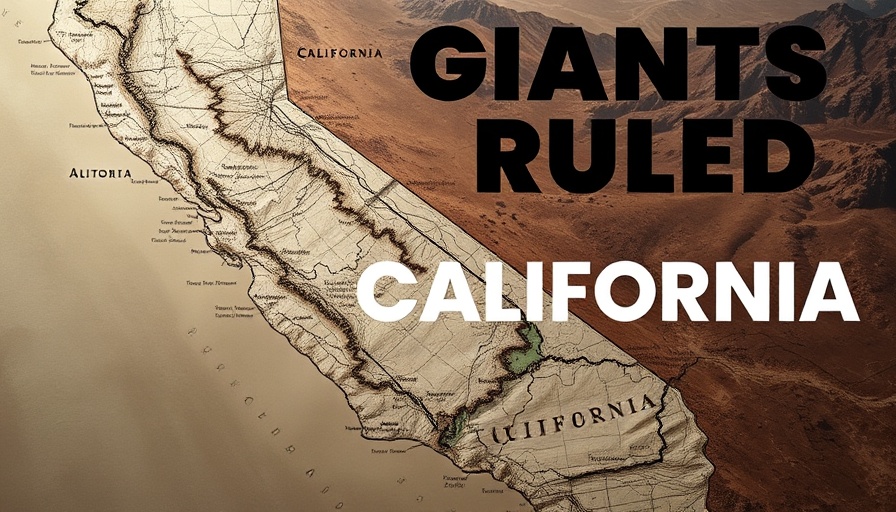
The Roots of a Global Phenomenon: Comic-Con's Humble Beginnings
Each summer, San Diego transforms into a vibrant tableau of cosplayers, creators, and fandom enthusiasts, all uniting not merely over love for comic books, but shared stories and experiences. What started with a handful of passionate believers in a rented room has grown into a cultural juggernaut. Comic-Con is no longer just a convention; it is a mirror that reflects the evolution of pop culture itself.
In 'The UNTOLD Story of Comic-Con: How Fandom Conquered the World', the video explores the beginnings and profound impacts of this iconic event on culture and community.
From Fans to a Community
The foundations for Comic-Con were laid long before it commenced in 1970. Fans gathered in living rooms, exchanging ideas, zines, and comic books, fostering a sense of belonging and community. This camaraderie marked the early days of fandom, where discussions over plot holes were as intense as courtroom drama. These exchanges were vital in establishing a culture that encouraged creativity and imagination, setting the stage for what Comic-Con would become.
The First Comic-Con: A Test of Passion
On March 21, 1970, just over a hundred attendees converged in a singular room at the US Grant Hotel, testing whether their fervor for comics could fill the air with excitement. Five months later, the Golden State Comic-Con opened its doors, bursting with energy and ambition. It wasn’t polished, but it was passionate. Rare comics, Super Eight films, and the presence of comic legends elevated this gathering into something more impactful than anyone expected. This was the genesis of the Comic-Con experience.
Shifting the Landscape of Fandom
As Comic-Con grew, it soon became a nexus of creativity spanning across genres. In the 1980s, comics merged with science fiction, art, horror, and fantasy. Cosplay emerged organically from this melting pot—a celebration of creativity where homemade costumes turned unwitting participants into celebrated figures. This cultural confluence provided an inclusive space for those who felt like outsiders to find their voice, reflecting a broader societal shift where diversity began to flourish in storytelling.
Comic-Con: An Engine of Entertainment
By the late 1990s and into the 2000s, Comic-Con evolved from a niche convention into a global media event. Hall H became a theatrical stage where entertainment giants unveiled trailers and film prospects that ultimately shaped pop culture. The quest for a seat at Hall H became a rite of passage, a measure of commitment among fans eager to witness the future of their cherished stories come alive—transforming line-ups into intimate gatherings of shared excitement.
The Pandemic Pause: Reflecting on Roots
For the first time in its fifty-year legacy, the pandemic silenced the bustling halls of Comic-Con in 2020. The abrupt halt served as a poignant reminder of the essence that keeps this event thriving—the human connection. While the digital event made attempts to reach fans, it was evident that the heartbeat of Comic-Con stemmed from in-person interactions, creativity, and celebration as a community.
Looking Forward: The Evolution Continues
The return of Comic-Con in 2022 marked a moment of reflection, a chance to honor its past while also looking toward an innovative future. The emergence of indie creators and a resurgence of grassroots energy was palpable. Attendees sought out unique art and storytelling that echoed the convention's origins. The presence of original founders and an intimate setting reminded fans of where it all began: with raw passion.
Today, Comic-Con remains a canvas where stories merge and fandom flourishes. As we peer into what lies ahead, it becomes evident that the advent of digital platforms could redefine how communities engage—making connections more accessible than ever. The evolution of Comic-Con captures a pivotal moment in entertainment history, reminding us that while it changes form, its heartbeats steadily, echoing the stories we create and share together.
Comic-Con isn’t just a convention; it is the embodiment of a movement. It mirrors not just the evolution of comics and cinema, but also the very nature of connection in a world where stories bind us together. So, this year as we delve back into the wonders of Comic-Con, let’s embrace its spirit and remember: every entry line is an invitation to be a part of something greater.
 Add Row
Add Row  Add
Add 




Write A Comment